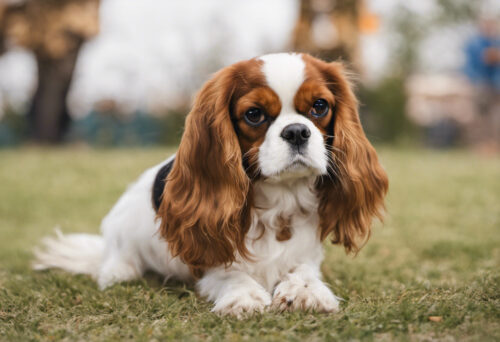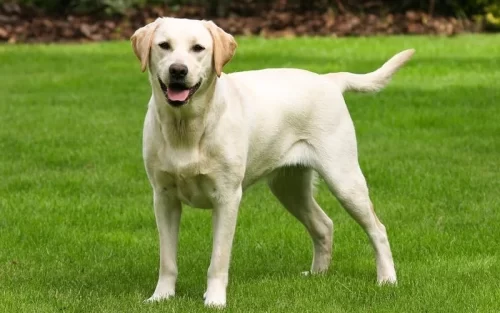Renowned for their friendly temperament, hearty tail-wagging, and entrancing large, round eyes, Cavalier King Charles Spaniels are beloved across the globe not just as endearing lapdogs, but as outstanding therapy stars too. Versatile as they come, these charming canines can adapt to different environments and needs, making them perfect companions for everyone, regardless of age or lifestyle.
Origins of the Cavalier King Charles Spaniels: More than just Lapdogs
Named after King Charles II of England due to his fondness for the breed, Cavalier King Charles Spaniels have roots steeped in royalty. But don’t let their opulent lineage fool you; these dogs are more than just glamorous lap warmers. With their great adaptability, high intelligence, and endearing personalities, they have successfully transitioned from royal courts to modern households and therapy rooms.
The Therapy Stars: Mental Health Champions
Arguably, one of the most significant roles Cavaliers play today is as therapy dogs. Their ability to empathise with human emotions and provide non-judgemental comfort makes them valuable companions for those suffering from mental health issues like anxiety and depression. A study even suggests that therapy dogs can reduce stress and improve moods.
Children and Therapy
Cavaliers are especially beneficial for children with Autism and ADHD. Therapeutic interactions with these dogs have been observed to improve social skills and reduce hyperactivity in affected kids. Their calming influence even aids in enhancing children’s academic performance, making them canine superheroes in the classroom.
Seniors and Therapy
Not just limited to children, senior citizens greatly benefit from the therapeutic charm of Cavalier King Charles Spaniels. In many assisted living homes, these dogs help mitigate feelings of loneliness and boost overall well-being, demonstrating their sterling impact across age brackets.
The At-Home Charmers: Everyday Companions
Beyond their impressive therapeutic capabilities, Cavaliers effortlessly fit into the role of beloved pets in numerous households. Their relatively small size coupled with an abundance of affection makes them ideal for both apartment dwellers and homeowners with expansive backyards. Remarkably adaptable, these spaniels can enjoy a couch potato lifestyle or engage in frolicsome outdoor pursuits, all while exuding an irresistible charm that strengthens the human-canine bond.

Actors on the Stage and Screen
Did you know these charismatic canines have also been Hollywood stars? Thanks to their stunning looks and expressive faces, they often steal the show in Disney productions, theatre shows, and popular television series like Sex and the City. Can you guess which famous Cavalier King Charles Spaniel rubbed shoulders with Sarah Jessica Parker? Spoiler: It was the adorable and tres chic Pete!
Shielding Allergies: The Hypoallergenic Superpowers
For those who love dogs but are wary of allergies, fear not! While no breed can be 100% hypoallergenic, Cavaliers are often better suited for people with allergies. Their lack of excessive drooling and a coat that sheds minimally combine to make them a fantastic choice for those who have dreaded allergies. This research article provides more insights into hypoallergenic dogs and how they can lead to less sneezing and more cuddling.
Athletic Prowess: More Than Meets the Eye
Perhaps surprising to some, Cavalier King Charles Spaniels make excellent workout buddies! With their sporting Spaniel heritage, these dogs love a good exercise romp. They thoroughly enjoy going on walks, chasing balls, and even participating in dog sports, like agility and obedience. This study discovered that dogs and humans exercising together lead to more significant health benefits for both parties.
A Forever Friend: The Lifespan of Cavaliers
With proper love and care, Cavaliers typically live between 9 – 14 years. Despite certain breed-specific health concerns, these spaniels’ lives can be prolonged with regular veterinarian check-ups, balanced diet, and adequate exercise. This study on dog longevity provides additional insights on extending your furry friend’s life span.
Parting Thoughts
In retrospect, it’s clear why Cavalier King Charles Spaniels are cherished globally. Their adaptability, therapeutic capabilities, hypoallergenic traits, and amicable personalities make them excellent companions for different types of families. Whether you need an empathetic therapy dog, a tiny low-allergy snuggler, or an energetic exercise buddy, Cavaliers are your versatile solution!

Caring for Your Cavalier: Diet, grooming and exercise
Providing proper nourishment and adequate exercise is a crucial aspect when it comes to the care of your Cavalier. Generally, adult dogs will consume up to one cup of dry food daily, split into two meals. Puppies are likely to eat three small meals each day. Get the comprehensive feeding guide here.
Grooming your Cavalier is relatively straightforward owing to their silky coat. It’s best to brush them once or twice a week to prevent matted fur. A complete grooming guide can be found on this Mad Cavies page.
Activities with Your Cavalier
Cavaliers aren’t just couch potatoes! This breed loves to engage in daily walks and playful games with their owners in a safely enclosed field or yard. Cavaliers also excel in various dog sports such as obedience, agility, and rally. You can find more about dog sports here.
Cavalier Health Concerns and Potential Solutions
Every breed tends to grapple with some health concerns, and Cavaliers are no exception. The breed is known to develop Mitral Valve Disease, a type of heart failure, and Syringomyelia, a rare condition that affects the brain and spine. Awareness and early diagnosis are key. The Cavalier Health website shares comprehensive information about these ailments.
Preventive Actions
Routine dental care promotes healthier lives for Cavaliers. Brush your pet’s teeth daily or use an enzyme toothpaste every other day. Regular visits to the vet can also help identify any potential health issues early. Find useful tips on pet dental care here.
Importance of Genetic Testing
Genetic testing can be beneficial to recognize potential diseases and inheritable conditions in dogs. This can assist in planning for early treatments or making informed decisions on breeding. Check out the Orivet Genetic Testing website to learn more.
In a Nutshell
Despite their few health challenges, Cavalier King Charles Spaniels undoubtedly make delightful and versatile companions. From being therapeutic stars to exciting workout buddies, Cavaliers bring joy, companionship, and positivity into their owner’s life. So, if you’re seeking a pet that will provide you with endless love, emotional support, and memorable moments, look no further than the elegant Cavalier King Charles Spaniel!



